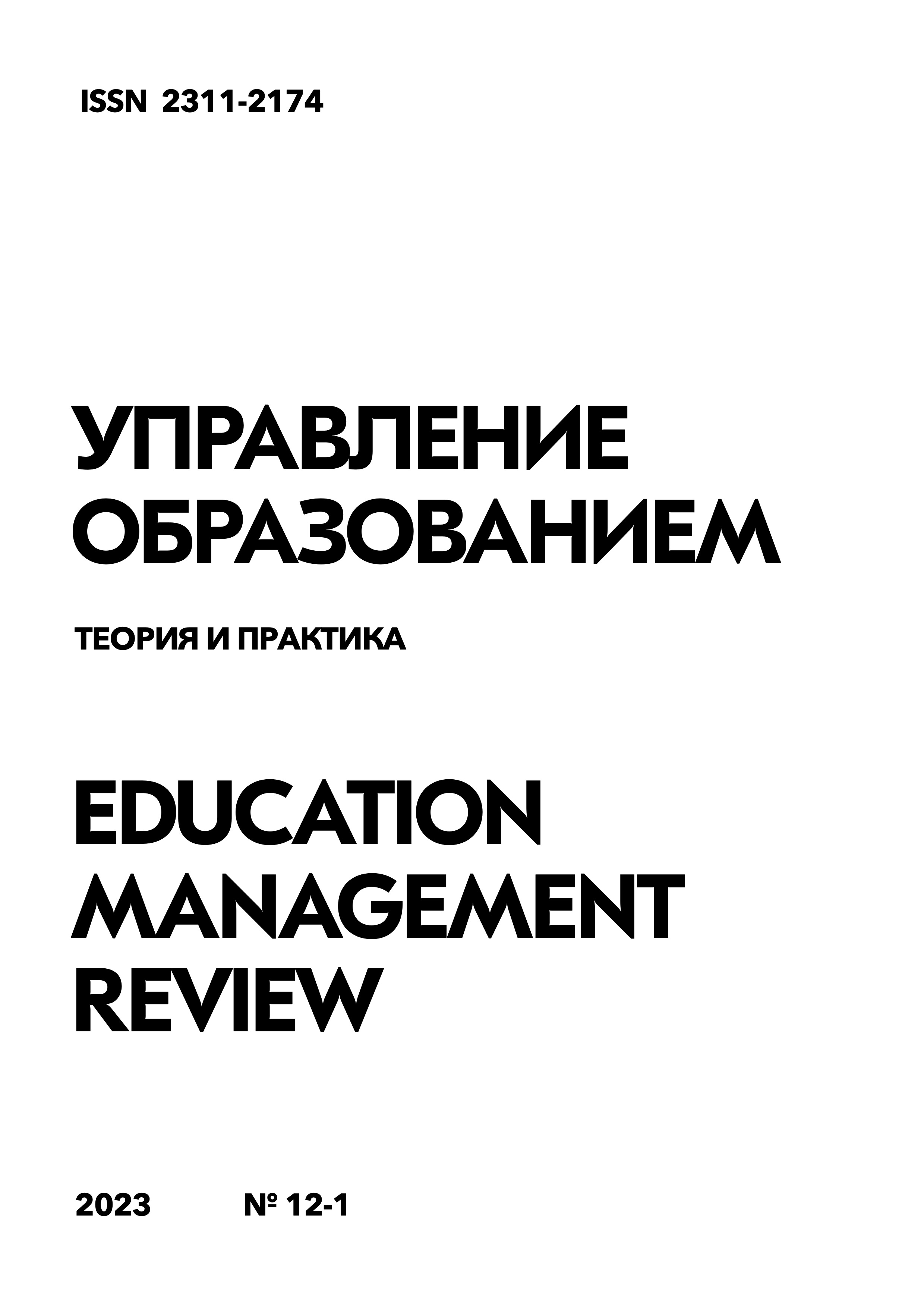Implementation of initiatives of the Decade of Science and Technology in the educational environment of the university
DOI:
https://doi.org/10.25726/a8554-4047-4828-hKeywords:
decade of science and technology, university educational environment, interactive teaching methods, student research work, commercialization of scientific research resultsAbstract
The relevance of holding events to implement the initiatives of the Decade of Science and Technology in the educational environment of the university is beyond doubt. In the context of growing competition in the global educational space and the need to train competitive graduates, there is a growing need to improve approaches to the implementation of scientific and educational activities in higher educational institutions. The goal of the work was to systematize the experience and best practices of implementing the initiatives of the Decade of Science and Technology in the educational process of the university through the introduction of interactive teaching methods, modernization of student research work, and creation of infrastructure for the commercialization of scientific research results. The paper examines the main approaches to the implementation of the initiatives of the Decade of Science and Technology in the educational activities of the university, analyzes the experience of introducing interactive teaching methods, describes programs for stimulating student research work, and provides an overview of the mechanisms for commercializing the results of scientific research. The results obtained indicate the feasibility of an integrated approach to the implementation of the initiatives of the Decade of Science and Technology, aimed at the comprehensive development of the creative potential of future specialists. The introduction of interactive teaching methods and the transition to a hybrid model of using digital educational resources contributed to a threefold increase in the share of disciplines implementing innovative approaches (from 18% to 42%), as well as a 15-20% improvement in student knowledge acquisition rates.
References
Басюк В.С., Ковалева Г.С. Инновационный проект Министерства просвещения «Мониторинг формирования функциональной грамотности»: основные направления и первые результаты // Отечественная и зарубежная педагогика. 2019. Т. 1, № 4 (61). С. 13-33.
Бебенина Е.В. Использование рейтингов университетов как индикаторов состояния и направлений развития // Педагогика. 2018. № 7. С. 43-52.
Вишневская И.В. Блогерство педагога - новый тренд образования // Молодой ученый. 2022. № 30.1 (425.1). С. 17-18. URL: https://moluch.ru/archive/425/94146/
Воронцов А.Б., Чудинова Е.В. Учебная деятельность: введение в систему Д.Б. Эльконина, В.В. Давыдова. М.: Рассказов, 2018. 300 с.
Глухов П.П., Попов А.А. Власть аргумента. Российская компетентностная олимпиада. М.: НКЦ Образование, Национальный книжный центр, 2020. 152 с.
Давыдов В.В. Что такое учебная деятельность? // Возрастная и педагогическая психология. М.: Просвещение, 2015. С. 66-97.
Демиденко Т.Г., Чистякова Н.А. Реализация интерактивного компонента в процессе практикоориентированного преподавания гуманитарных дисциплин // Управление образованием: теория и практика. 2023. № 7(65). С. 32-38. DOI 10.25726/z2237-5269-6534-k. EDN MCHYVV.
Канянина Т.И., Круподерова Е.П., Степанова С.Ю. Интернет-проект: от идеи до реализации. Методическое пособие. Нижний Новгород. Нижегородский институт развития образования. 2017. 211 с.
Ковалева Г.Д., Айхэмайти M. Современный экономический и институциональный потенциал Синьцзян-Уйгурского автономного района КНР с позиций межрегионального сотрудничества // Регион: экономика и социология. 2019. № 3. С. 291-318.
Круподерова Е.П., Круподерова К.Р. Интернет-сервисы для построения персональной цифровой среды современного учителя // Проблемы современного педагогического образования. Сборник научных трудов: Ялта: Редакционно-издательский отдел, 2018. Вып. 61. Ч. 4. С. 176-179.
Круподерова Е.П., Круподерова К.Р. Организация внеурочной проектной деятельности обучающихся с помощью сетевых сервисов // Эксперимент и инновации в школе. 2016. № 3. С. 66-70.
Пармон В.Н., Крюков В.А., Селиверстов В.Е. Трансграничные взаимодействия на Востоке России: научное сопровождение и задачи Сибирского отделения Российской академии наук // Регион: экономика и социология. 2020. № 2. С. 226-258.
Селиверстов В.Е. Академгородок 2.0: сценарии развития и система управления // Регион: экономика и социология. 2019. № 4. С. 24-54.
Суртаева Н.Н. Педагогические технологии. Учебное пособие для бакалавриата и магистратуры. 2-е изд., испр. и доп. М.: Юрайт, 2019. 250 с.
Суслов В.И. Сибирь как мегарегион: экономические параметры и стратегии развития // Сибирь как мегареги-он: параметры и цели. Под науч. ред. В.И. Супруна. Новосибирск: «Тренды», 2018. С. 70-86.
Ушакова Е. В., Сычева Е. О. Интерактивные формы учебных занятий как фактор мотивации студентов-предпринимателей к изучению культуры речи // Современная конкуренция. 2022. Т. 16, № 3 (87). С. 133-143. DOI 10.37791/2687-0657-2022-16-3-133-143. EDN RODBKW.
Хуторской А.В. Развитие одаренности школьников. Методика эвристического обучения. Пособие для учителя. М.: Центр дистанционного образования "Эйдос", 2020. 217 с.

